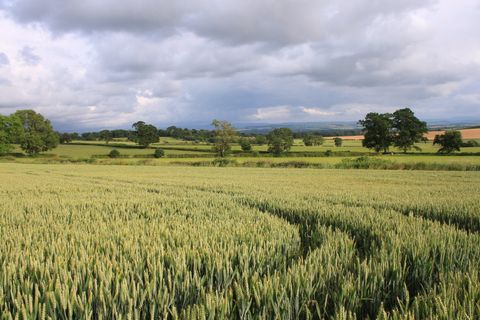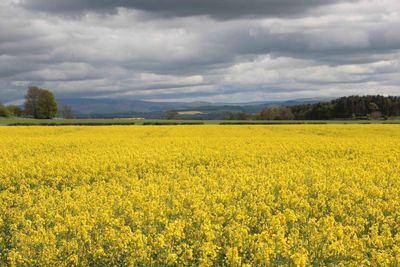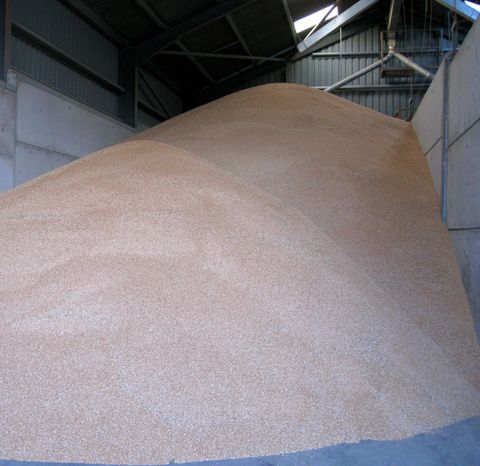Crops and Arable Production
The major arable production specialises in barley for malting and pearling, and wheat for biscuit and bread making. Oilseed rape is grown as a break crop, for the biofuel industry and also for cooking oil. All crops are grown under the Scottish Quality Cereals assurance protocol.
J.N. Fuller-Shapcott & Co farms an additional 100 hectares (250 acres) of arable ground under various rental and contract farming agreements.

6 Year Rotation
Soils and Cultivations
We farm predominately heavy clay loam soils of the Whitsome association, technically described as having “impeded natural drainage” – that is to say that it does not dry out very fast! Almost all of the Sweethope fields have extensive under-drainage, which requires vital regular maintenance, especially after wet years! If global warming means warmer drier summers, bring it on!!
With the exception of the oilseed rape, all crops are established by a single pass with a deep tined cultivator, followed by our power harrow/drill combination unit. The oilseed rape crop is “subcast” using the same cultivator but set to disturb the surface of the soil much less. Seed is drilled and fertiliser broadcast onto the soil behind each of the 7 legs of the cultivator, and covered over. All crops should be rolled after drilling, but often the weather has other ideas! Slugs would be enemy no.1 every autumn, as they enjoy eating freshly germinating crops in heavy wet conditions.
Precision Applications
Throughout the growing year, from drilling seed through to spraying and spreading fertiliser, and eventually to harvesting, we use modern technology to improve the accuracy of our work. Drilling is completed with the aid of GPS guided auto-steering, resulting in very accurate following field operations, minimising our environmental impact as well as waste. Variable rate seed sowing is normal practice for us. Where ‘tramlines’ are not put in by the drill (e.g. the oilseed rape crop), or on our grassland, the application tractor also has GPS guidance to improve accuracy. Finally, the combine harvester has GPS guidance and yield mapping as part of its package. We monitor yield variations over each field, and between fields to plan future improvement actions.
Grain Drying & Storage
Sweethope has a batch grain drier, along with in-bin drying / conditioning for most grain types. Following significant investment over recent years, we have almost 2000 tons of on-floor grain storage, as well as space for our mainline machinery, none of which is allowed to sit outside during winter.


